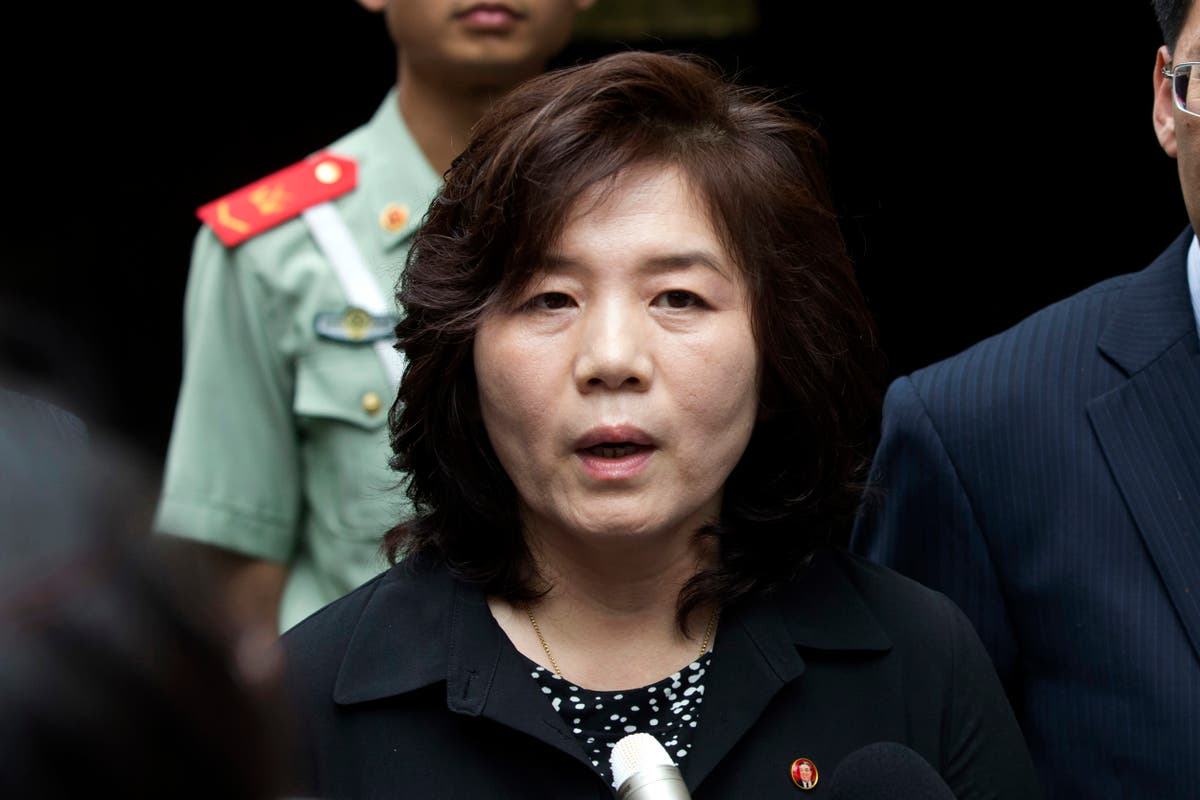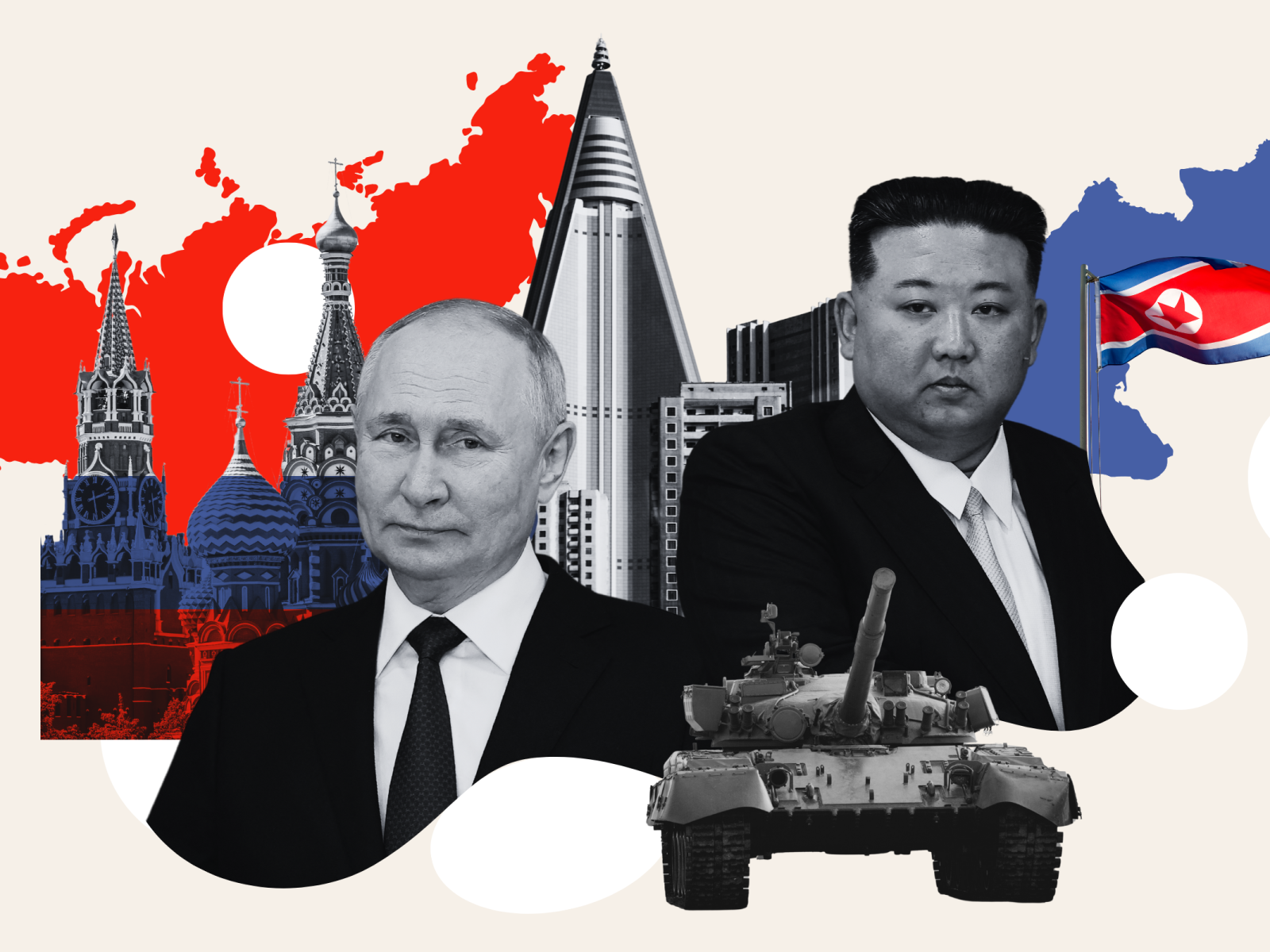In a significant display of allegiance, North Korea has declared its unwavering support for Russia until it achieves “victory” in Ukraine, marking a critical geopolitical moment that intertwines the ambitions of Pyongyang and Moscow on the world stage. North Korea’s Foreign Minister, Choe Son Hui, announced the nation’s backing during a high-profile visit to Moscow, highlighting North Korea’s deepening ties with Russia and signaling a potential shift in the Ukraine conflict dynamics.

Why North Korea is Standing by Russia
North Korea’s decision to align with Russia in the Ukraine conflict highlights an evolving partnership rooted in mutual interests. The two countries have increasingly found common ground, particularly since Russia’s isolation from the West escalated over its actions in Ukraine. By siding with Russia, North Korea gains a powerful ally and access to resources and military technology, both of which are crucial to Pyongyang’s long-term objectives, including strengthening its nuclear program. This alliance appears mutually beneficial, with Russia securing additional support as it faces heavy sanctions and a protracted conflict.

Choe’s comments in Moscow, affirming that North Korea will stand “firmly by [its] Russian comrades until victory day,” underscore the ideological and strategic motivations behind this alliance. The presence of North Korean troops or support for Russia in Ukraine could reshape the battlefield, adding a new layer of complexity to the conflict and raising concerns for Western nations and Ukraine.
The Potential Role of North Korean Troops in Ukraine
There are growing concerns among Western intelligence agencies about the potential deployment of up to 10,000 North Korean troops to assist Russian forces in Ukraine. Reports indicate that some North Korean forces may already be positioned near Russia’s Kursk border region, a development that could tilt the scale in localized battles. U.S. and South Korean intelligence have warned Pyongyang against this involvement, but North Korea remains resolute in its stance.
Such a deployment would mark an unprecedented level of North Korean involvement in a foreign conflict, reinforcing the perception of Pyongyang’s growing assertiveness on the international stage. North Korea has expressed complete confidence in Russian President Vladimir Putin’s leadership, with Choe praising the Russian offensive in Ukraine as a “sacred struggle.” While neither Moscow nor Pyongyang has officially confirmed the presence of North Korean troops, their close military coordination raises the possibility of North Korean involvement in combat or logistical support roles.
Strategic Interests: Nuclear Technology and Security Ties
At the heart of North Korea’s alignment with Russia lies its nuclear ambitions. Pyongyang views Moscow as a potential source of nuclear technology, which would bolster its own military capabilities. North Korea’s ongoing pursuit of nuclear advancements has been well-documented, and this partnership with Russia could potentially offer Pyongyang access to critical knowledge or materials to enhance its nuclear arsenal.
North Korea’s recent test-firing of one of its most powerful missiles, condemned by the West, signals its intent to maintain a nuclear deterrent. In Moscow, Choe reaffirmed that North Korea would not veer from its nuclear path, blaming Western nations for escalating tensions on the Korean Peninsula. This commitment to nuclear development aligns with Pyongyang’s desire for Russian support, creating a potentially dangerous nexus of military power between North Korea and Russia.
Russia’s Perspective: Deepening Historical Ties with North Korea
For Russia, support from North Korea is both practical and symbolic. As the West’s sanctions have curtailed Russia’s options, alliances with countries like North Korea and Iran provide essential backing in military hardware and international solidarity. Russian Foreign Minister Sergei Lavrov expressed gratitude for North Korea’s “principled stance” on Ukraine, underscoring the historical bonds between the two nations dating back to the Soviet era.
To commemorate their shared past, Lavrov and Choe unveiled a plaque at Moscow’s Yaroslavsky railway station, honoring North Korean leader Kim Il Sung’s visit to Moscow in 1949. This gesture of unity serves as a reminder of Russia’s long-standing ideological and political relationship with North Korea, which Moscow has revitalized to counterbalance Western influence.
U.S. and Western Responses to the Growing North Korea-Russia Axis
The possibility of North Korean troops aiding Russian forces has drawn strong responses from Western countries. U.S. Secretary of State Antony Blinken voiced concerns that North Korea could join the conflict in the “coming days,” a move that could draw further international condemnation and strain existing diplomatic tensions. In response, the United States announced an additional $425 million in military aid to Ukraine, focused on air defense and munitions, underscoring its commitment to support Kyiv against expanding threats.
Ukrainian President Volodymyr Zelensky expressed frustration at what he perceives as a lack of proactive support from Western allies, pointing to the need for long-range missiles to pre-emptively target Russian encampments where North Korean soldiers might be stationed. Zelensky criticized allies for not enabling Ukraine to “strike preventively,” an option he sees as crucial to countering the potential impact of North Korean forces.
Implications for the Korean Peninsula and the Global Stage
North Korea’s deepening ties with Russia and its growing involvement in the Ukraine conflict could have significant implications for the Korean Peninsula. South Korea has warned that North Korea’s participation in Ukraine could heighten security threats and further destabilize regional dynamics. There is also speculation that Pyongyang might leverage its support for Russia to secure advanced military technology, which could escalate tensions with Seoul and Washington.
Choe’s warning that the situation on the Korean Peninsula could become “explosive” due to perceived U.S. provocations illustrates North Korea’s broader geopolitical strategy. As North Korea aligns itself more closely with Russia, the country is signaling a readiness to assert its interests aggressively, potentially leading to increased provocations or missile tests in the coming months.
A Dangerous Alliance with Far-Reaching Consequences
North Korea’s unwavering support for Russia in Ukraine reflects a strategic shift that aligns the two countries’ interests in confronting the West. For Russia, North Korean support provides additional military resources and strengthens its ideological narrative against Western influence. For North Korea, Russia represents a vital ally in its pursuit of nuclear advancement and international relevance.
The North Korea-Russia alliance raises profound concerns for global stability, as it signals a convergence of nuclear ambition, military cooperation, and ideological unity that could further destabilize not only Eastern Europe but also East Asia. The West now faces the challenge of addressing this alliance without escalating the conflict, a delicate balance that will require both diplomatic finesse and strategic clarity.
As the Ukraine war continues, North Korea’s involvement serves as a stark reminder of the broader geopolitical stakes at play, with Pyongyang’s ambitions posing an ongoing threat to regional and global security. The alliance between North Korea and Russia is more than a partnership; it is a calculated stand against the West, one that could have far-reaching consequences for years to come.

